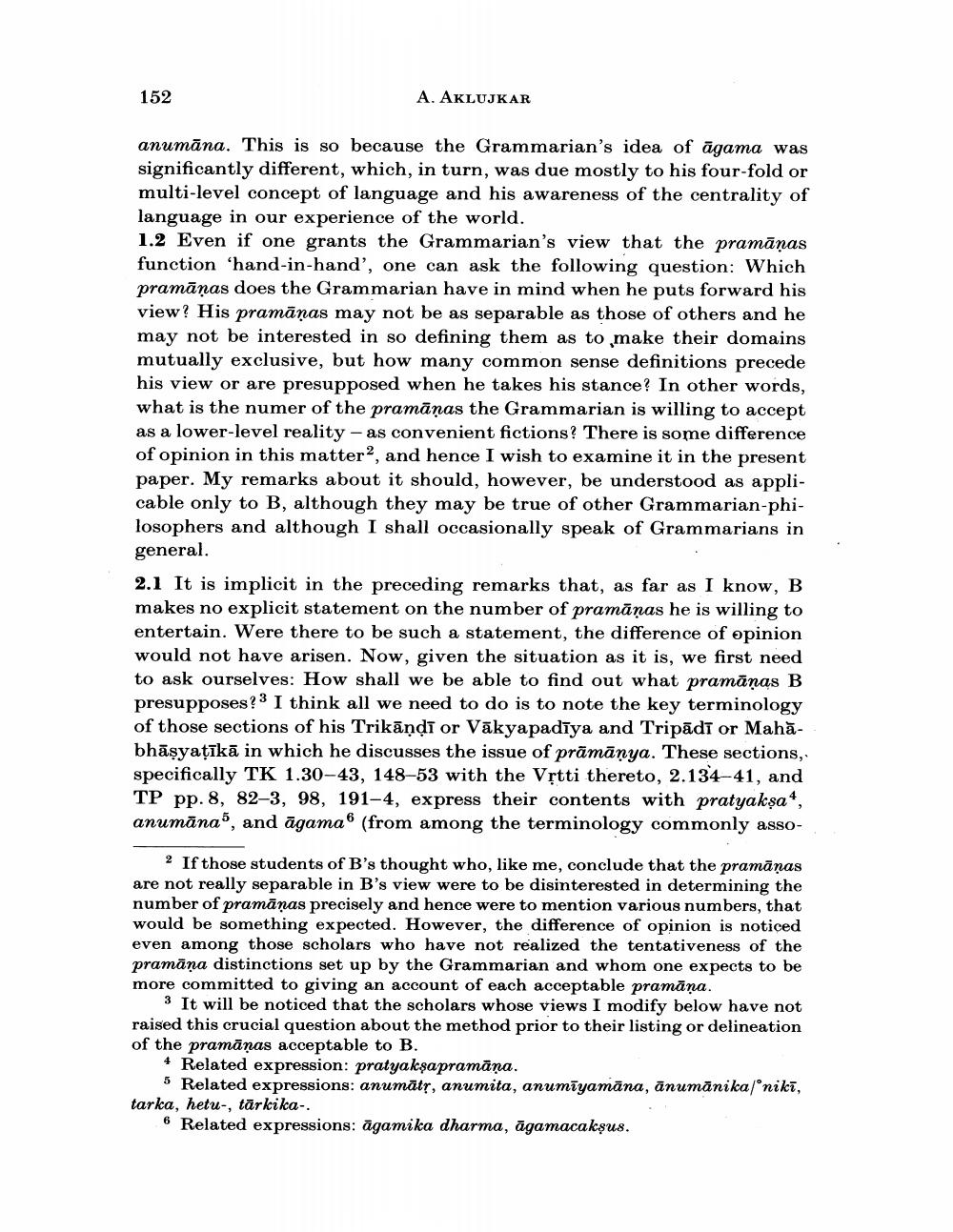Book Title: Number Of Pramanas According To Bhartrhari Author(s): Ashok Aklujkar Publisher: Ashok Aklujkar View full book textPage 2
________________ 152 A. AKLUJKAR anumāna. This is so because the Grammarian's idea of agama was significantly different, which, in turn, was due mostly to his four-fold or multi-level concept of language and his awareness of the centrality of language in our experience of the world. 1.2 Even if one grants the Grammarian's view that the pramāṇas function 'hand-in-hand', one can ask the following question: Which pramāṇas does the Grammarian have in mind when he puts forward his view? His pramāṇas may not be as separable as those of others and he may not be interested in so defining them as to make their domains mutually exclusive, but how many common sense definitions precede his view or are presupposed when he takes his stance? In other words, what is the numer of the pramāṇas the Grammarian is willing to accept as a lower-level reality - as convenient fictions? There is some difference of opinion in this matter?, and hence I wish to examine it in the present paper. My remarks about it should, however, be understood as applicable only to B, although they may be true of other Grammarian-philosophers and although I shall occasionally speak of Grammarians in general. 2.1 It is implicit in the preceding remarks that, as far as I know, B makes no explicit statement on the number of pramāṇas he is willing to entertain. Were there to be such a statement, the difference of opinion would not have arisen. Now, given the situation as it is, we first need to ask ourselves: How shall we be able to find out what pramānas B presupposes? 3 I think all we need to do is to note the key terminology of those sections of his Trikāndī or Vākyapadīya and Tripādī or Mahābhāṣyatīkā in which he discusses the issue of prāmānya. These sections, specifically TK 1.30-43, 148–53 with the Vrtti thereto, 2.134-41, and TP pp. 8, 82-3, 98, 191-4, express their contents with pratyakşa*, anumāna", and āgama (from among the terminology commonly asso 2 If those students of B's thought who, like me, conclude that the pramānas are not really separable in B's view were to be disinterested in determining the number of pramānas precisely and hence were to mention various numbers, that would be something expected. However, the difference of opinion is noticed even among those scholars who have not realized the tentativeness of the pramāna distinctions set up by the Grammarian and whom one expects to be more committed to giving an account of each acceptable pramāna. 3 It will be noticed that the scholars whose views I modify below have not raised this crucial question about the method prior to their listing or delineation of the pramāņas acceptable to B. * Related expression: pratyakşapramāna. 5 Related expressions: anumatr, anumita, anumīyamāna, anumānikaloniki, tarka, hetu-, tärkika 6 Related expressions: āgamika dharma, āgamacakşus.Page Navigation
1 2 3 4 5 6 7 8
